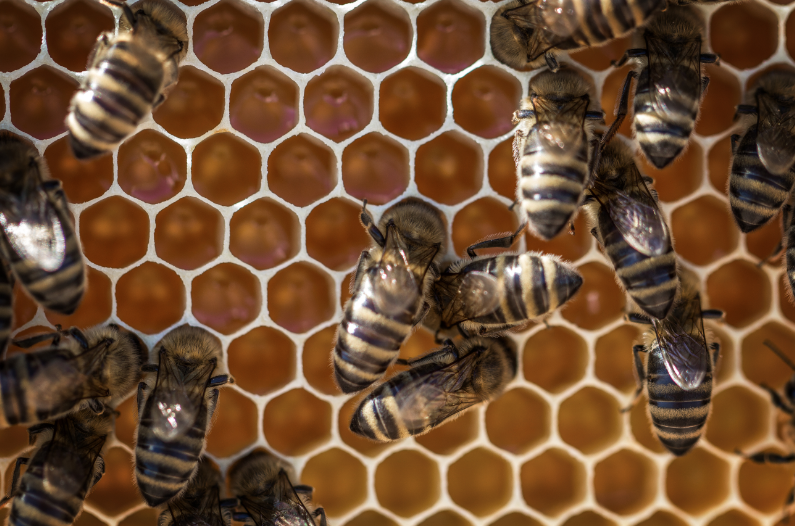Several years ago, a dear friend of mine, Jeff, noticed honeybee activity near his water box. In our small town, an employee from the city water department was sent out to every household to read the meters. To give the city a heads-up and not wanting anyone to get hurt, Jeff called the water department. However, no one ever responded.
In total frustration, he called me. He knew that I was freelance writer, and he wondered if this was a story that one of the papers might want to cover. I told him that I’d call my editor. It was the beginning of colony collapse disorder, where beehives were discovered to be void of worker bees, leaving behind the queen with plenty of food. It was, and still is, a huge concern. When I approached the idea, my editor immediately gave me the assignment. She was sending a photographer and we were to meet up with a beekeeper who was going to try to relocate the queen.
Meeting the beekeeper
The beekeeper, dressed head to toe in bee attire, arrived at the designated time. He wore the beekeeper veil that protected his face and head; obviously gloves for his hands; and pants tucked into his boots. The beekeeper gave us instructions not to move too quickly and remain calm. If a bee landed on us, we were not to swat it or make and sudden moves. Privately, I wondered if this were true, why was he wearing protective clothing. I decided to go along with it. I’m not allergic to bees and wanted to get the story.
The thought of bees landing on human skin sent Jeff and his friend, Tim, into the house in a hurry. They went to the second-floor balcony where they literally had a birds-eye view.
The beekeeper got to work and as expected, the bees slowly flew around him as he reached into the water box. Patrick, the photographer, got to work snapping pictures of the bees and beekeeper. At one point there was a bee on the lens of the camera, in Patrick’s hair and on his arms. Oh boy, I can’t wait for this, I thought.
The beekeeper did his examination and found the queen, which he put in a special container to relocate her to an area far away from Jeff’s house. The remaining bees began to fly about my head and face. They crawled over my note pad and landed on the top of my pen like they were the King of the Bees. They lightly danced over my arms, which tickled. I remembered the words of the beekeeper – no sudden moves.
When he was finished, I began asking questions on everything I could think of about bees. Taking notes was tricky, trying to write with the help of bees. The beekeeper filled me in and taught me a lot about bees. To my surprise, he told me that he ships his honey all over the country. It was a fun and interesting assignment.
Working like a honeybee
Finally, I went home and wrote the story and quickly got it off to my editor. I didn’t really think about it again until the next morning when I got my paper out of the driveway. I thought it was going to be a feature story. Imagine my surprise when I saw it on the front page! Everything was perfect. I loved the photos that accompanied the story and my story wasn’t half bad. However, it certainly wasn’t hard breaking news.
In a small town, everyone seemed to read that issue because I had several phone calls and people that I met on the street all commented on the story and making the front page. I knew the hoopla would die down, so I basked in the attention.
Jeff called me later that afternoon to tell me that a TV station in Jacksonville picked up the story and wanted to come and interview him. He declined the offer and instead gave them his neighbor’s number who was into beekeeping and gardening. They called her, drove the hour and half to interview her, filmed the water box and the story aired that evening.
Before the story aired, I called my editor to tell her about it. Her only comment was, “We scooped them!”
Moral of the story
Being a writer is a lot like being a honeybee. Sometimes the work is monotonous, sometimes it’s exciting. Once in a while, you have to crawl around people you may or may not like. Sometimes you do all the work and someone else (the queen) gets all the credit. In the end, you have to put in the time and do the work because you never know where your story (or honey) may end up.
